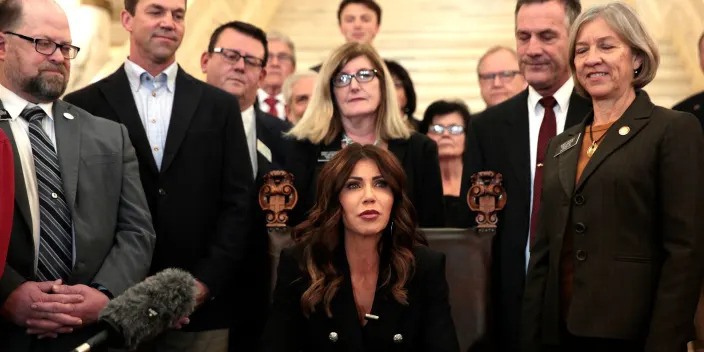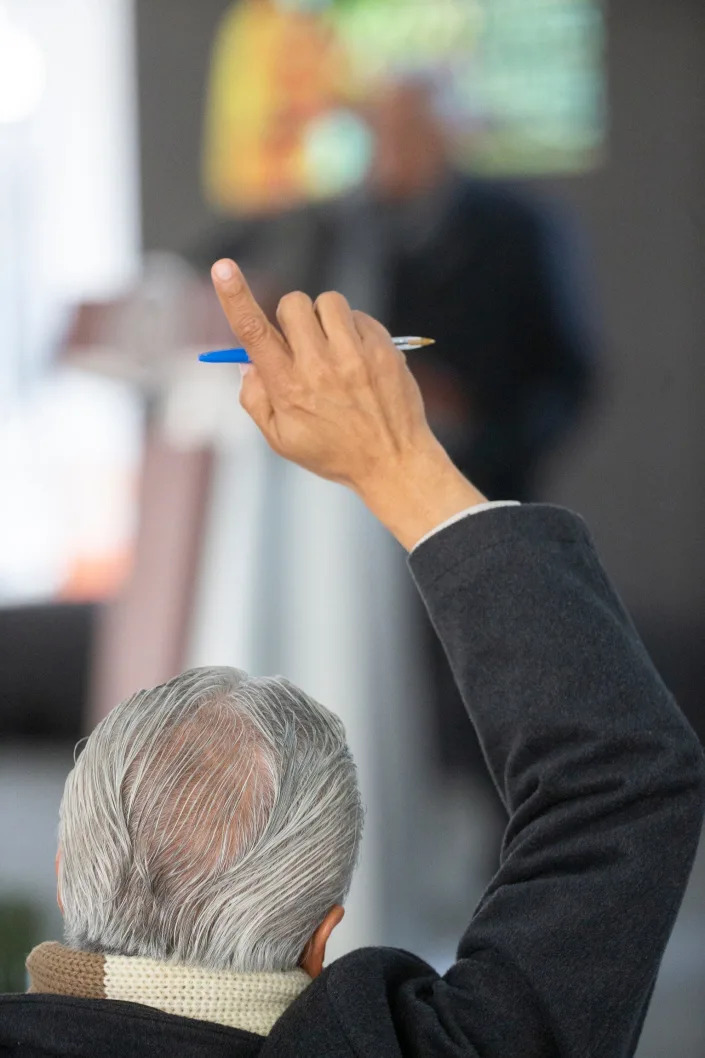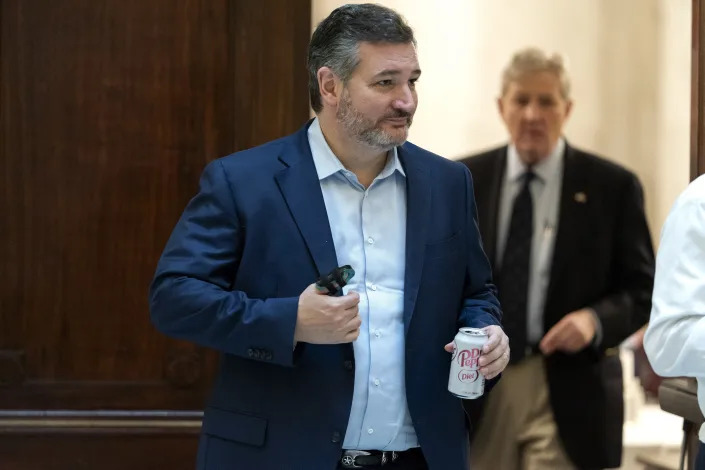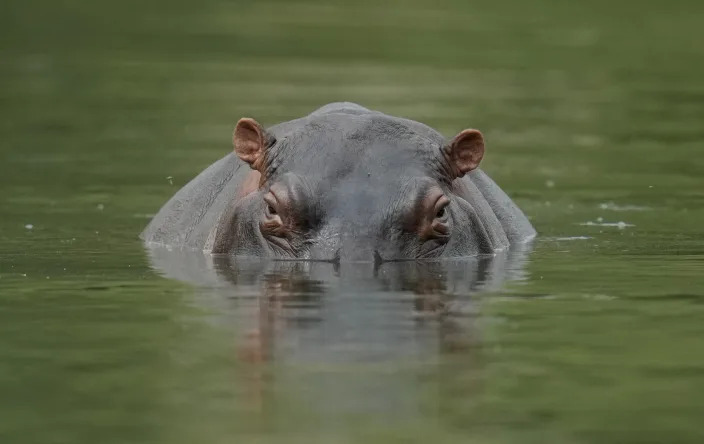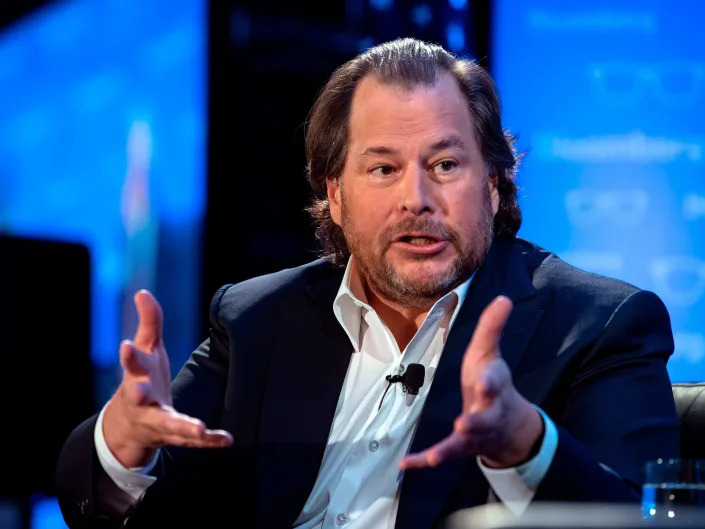Brad Bushman, Professor of Communication and Rinehart Chair of Mass Communication, The Ohio State University
Fri, February 18, 2022,

Asian Americans have been targeted with hate crimes during the pandemic. Spencer Platt/Getty Images
No one wants their geographic region to be associated with a deadly disease. Unfortunately, this has happened in the past with diseases such as “German measles,” “Spanish flu” and “Asiatic cholera.”
It happens today, too, even though the World Health Organization advises against naming pathogens for places to “minimize unnecessary negative effects on nations, economies and people.” By Feb. 11, 2020, the WHO had announced that the official name for the novel coronavirus just starting its spread around the world would be severe acute respiratory syndrome coronavirus 2 – or SARS-CoV-2. The illness it caused would be called COVID-19, short for Coronavirus Disease of 2019.
Yet some politicians, conservative journalists and others persisted in calling the COVID-19 virus the “Chinese virus,” or some variant of this term, such as the “China virus,” “Wuhan virus” (after the Chinese city that first reported the virus), “Chinese flu” and “Kung flu.”
Does it matter?
Hateful behavior against Asians in the U.S. and many other countries rose after the start of the pandemic. According to the FBI, anti-Asian hate crimes increased by 73% in 2020.
Social scientists like me are investigating the kinds of repercussions racialized framing – like calling the coronavirus “Chinese” – can have.
Reading just one article had an impact
The way media frame, depict and describe events can have a profound influence on the public’s perception of those events. Researchers have found that audiences are prone to interpret media stories in the context of their biases, especially in relation to racial groups.
My colleagues Lanier Frush Holt, Sophie Kjærvik and I found that simply reading one media article calling the coronavirus the “Chinese virus” made people more likely to blame China for the pandemic.
We randomly split a diverse sample of 614 American adults into two groups. One read a fabricated news article that labeled the coronavirus as the “Chinese virus.” The other read an identical article except for labeling the coronavirus as the “COVID-19 virus.”
There were important differences in how the articles were perceived. For instance, Democrats and more liberal individuals judged the “Chinese virus” article much more negatively than did Republicans and more conservative individuals. But overall, we found that participants who read the “Chinese virus” article were 8.5% more likely to agree with the statement “China is responsible for the current global pandemic” than were those who read the “COVID-19 virus” article.
The effect of reading that one article with “Chinese virus” language was not huge, and we wouldn’t expect it to be. The attitudes and beliefs that people brought with them before they read the story had a greater influence on their likelihood to blame China for the pandemic than did the framing language. But the fact that reading a single “Chinese virus” article did have an impact on readers with a range of political leanings shows the power of labeling a disease for a geographic region.
Naming does the framing
Other researchers have also found connections between the “Chinese virus” label and anti-Asian sentiments.
One study linked then-president Donald Trump’s tweet on March 16, 2020, that referred to “the Chinese Virus” with a rise in anti-Asian hashtags.
When pressed on his repeated use of the term “Chinese virus,” Trump told reporters at a news briefing: “It’s not racist at all. … It’s from China. That’s why. It comes from China. I want to be accurate.”
When researchers studied 1.2 million hashtags on Twitter in March 2020, they found that approximately 1 in 5 hashtags used in tweets along with #covid19 were anti-Asian, whereas half of the hashtags used alongside #chinesevirus were. “Chinese virus” wasn’t just an innocent statement of reality, as Trump seemed to contend. It was often paired with racist sentiment.
As racially stigmatizing language like “Chinese virus” increased in the media in March 2020, so did the belief that Asian Americans are less “American” than their white counterparts.
Another study found that exposure to conspiracy theories and misinformation linking China to the spread and creation of the coronavirus was correlated with an increase in anti-Chinese sentiment and xenophobia.
Use of terms like “Chinese virus” by the media and political leaders is unlikely to change a person’s beliefs or attitudes. But it can trigger negative stereotypes that can heighten prejudice and possibly even incite incidents of hate.
Just as biomedical researchers try to understand how pathogens spread through a population, social scientists are working to understand the spread of hate and prejudice. Unfortunately, in the case of the COVID-19 pandemic and anti-Asian bias, only a brief exposure to racially charged language can have negative impacts.
This article is republished from The Conversation, a nonprofit news site dedicated to sharing ideas from academic experts. It was written by: Brad Bushman, The Ohio State University.
Read more:
Calling COVID-19 a ‘Chinese virus’ is wrong and dangerous – the pandemic is global
The long history of US racism against Asian Americans, from ‘yellow peril’ to ‘model minority’ to the ‘Chinese virus’
